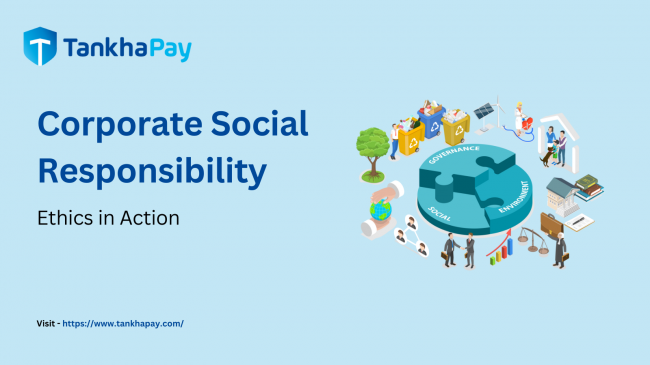
In the ever-evolving world of search engine optimization (SEO), the temptation to take shortcuts can be strong. One such "shortcut," cloaking in SEO, involves displaying different content to search engines and human visitors. While it might seem like a quick way to improve your website's ranking, it's a deceptive practice that ultimately backfires. This guide explores ethical alternatives to cloaking, helping you achieve sustainable SEO success through genuine efforts.
Understanding Cloaking in SEO:
Before diving into alternatives, let's understand how cloaking works. Imagine creating a storefront with two display windows: one filled with carefully curated products aimed at impressing a fashion inspector, and the other showcasing the actual products you sell to customers. Cloaking in SEO operates similarly, presenting search engines with a "glamorized" version of your website content while offering a different experience to human visitors.
Common Cloaking Techniques:
- User-agent detection: The website identifies the user as a search engine bot and displays content heavily stuffed with keywords, while regular users see a different page.
- IP address filtering: The website targets specific IP addresses associated with search engines with the "optimized" content.
- JavaScript manipulation: The "good" content is hidden within JavaScript code, accessible only to search engines, while users see a different version.
Why is Cloaking Bad?
While the initial goal might be to deceive search engines into ranking your website higher, the consequences of cloaking are severe:
- Search Engine Penalties: Search engines like Google have sophisticated algorithms designed to detect cloaking attempts. Getting caught can lead to harsh penalties like:
- Lower rankings: Your website's visibility in search results could plummet, making it difficult for potential customers or visitors to find you.
- De-indexing: In extreme cases, your website might be completely removed from search engine results, rendering it invisible to everyone.
- Manual penalties: Search engines might issue additional tasks or requirements to regain visibility, adding complexity and time to the process.
- Damaged User Experience: When users land on a page expecting content based on what search engines displayed, they face a disappointing and irrelevant experience. This leads to frustration, distrust, and high bounce rates, ultimately harming your website's reputation and potential for genuine user engagement.
- Wasted Resources: Maintaining cloaking requires constant technical effort and resources to ensure the deceptive content remains hidden from users while visible to search engines. This effort could be much better directed towards creating valuable content, building organic backlinks, and improving user experience, leading to sustainable growth and success.
Ethical and Sustainable SEO Alternatives:
Instead of resorting to unethical practices like cloaking, focus on these ethical and sustainable SEO strategies:
1. Content is King:
- Develop high-quality content: Create informative, engaging, and valuable content relevant to your target audience. This naturally attracts both search engines and users.
- Focus on expertise: Establish yourself as an authority in your field by providing in-depth insights, valuable tips, and comprehensive information.
- Prioritize user experience: Ensure your content is well-written, engaging, and visually appealing, making it a pleasure for users to read and share.
- Target relevant keywords: Research and strategically use keywords related to your content and target audience, but avoid keyword stuffing as it appears unnatural and can negatively impact rankings.
2. Building Trust and Authority:
- Earn backlinks organically: Build relationships with other reputable websites in your niche and strive to earn backlinks naturally, as they signal trust and authority to search engines. This can be achieved through guest blogging, creating link-worthy content, and engaging in online communities.
- Focus on local SEO: If you have a local business, optimize your website and online presence for local search results by claiming your Google My Business listing, building citations across relevant directories, and focusing on local keywords.
- Engage with your audience: Respond to comments, answer questions, and participate in online discussions relevant to your niche. This fosters trust and strengthens your online presence.
3. Technical SEO Matters:
- Ensure website speed: A fast-loading website is crucial for both search engine ranking and user experience. Optimize images, minimize code, and consider using a content delivery network (CDN) to improve loading times.
- Mobile-friendliness is essential: With the majority of searches now happening on mobile devices, ensure your website is responsive and optimized for mobile viewing.
- Clear website structure: Create a clear and logical website structure with intuitive navigation for both users and search engines. This allows search engines to crawl and index your website effectively.
- 4. Transparency and Authenticity:
- Be honest and transparent: Building trust with your audience is key to sustainable success. Avoid making misleading claims or using deceptive tactics to attract visitors.
- Focus on your value proposition: Clearly communicate what makes your website unique and valuable to your target audience. Offer something genuine and beneficial that sets you apart from the competition.
- Provide accurate and up-to-date information: Ensure the content on your website is accurate, up-to-date, and reflects your expertise in your field. This builds trust with users and reinforces your website's authority.
Long-Term Benefits of Ethical SEO:
By focusing on ethical and sustainable SEO practices, you can reap numerous long-term benefits:
- Improved website traffic: By creating valuable content that resonates with your target audience, you naturally attract organic traffic through search engines and user engagement.
- Enhanced brand reputation: Building trust and providing a positive user experience strengthens your brand reputation and fosters long-term customer loyalty.
- Sustainable growth: Ethical SEO practices contribute to sustainable website growth, allowing you to organically establish your website as a valuable resource within your niche.
Conclusion:
Remember, shortcuts like cloaking in SEO ultimately lead nowhere. Instead, by focusing on creating high-quality content, building trust and authority, prioritizing user experience, and adhering to ethical search engine optimization practices, you can achieve sustainable success and build a website that is both search engine friendly and user-friendly, attracting your desired audience organically.
By prioritizing genuine efforts over deceptive tactics, you cultivate a positive online presence that thrives on transparency, trust, and the valuable content you offer to your audience. This is the foundation for long-term success in the ever-evolving world of search engine optimization.











